 60 DAY warranty on all custom-made products | 1,000+ 5 Star ★★★★★ Reviews
60 DAY warranty on all custom-made products | 1,000+ 5 Star ★★★★★ Reviews 60 DAY warranty on all custom-made products | 1,000+ 5 Star ★★★★★ Reviews
60 DAY warranty on all custom-made products | 1,000+ 5 Star ★★★★★ Reviews
Partial dentures offer a fantastic way to regain your smile. However, the choice of material plays a vital role in ensuring comfort, longevity, and a natural look. With the plethora of choices available, selecting the right material can feel like quite the task.
In this blog post, we’ll delve into the various materials utilized in crafting partial dentures and discuss their advantages and drawbacks. By understanding the benefits of each material, you can choose the one that meets your unique needs and preferences, bringing back your confidence to smile and enhancing your overall lifestyle.
There are various denture material types for constructing partial dentures, each with advantages and disadvantages. Let’s dig into the most common ones:
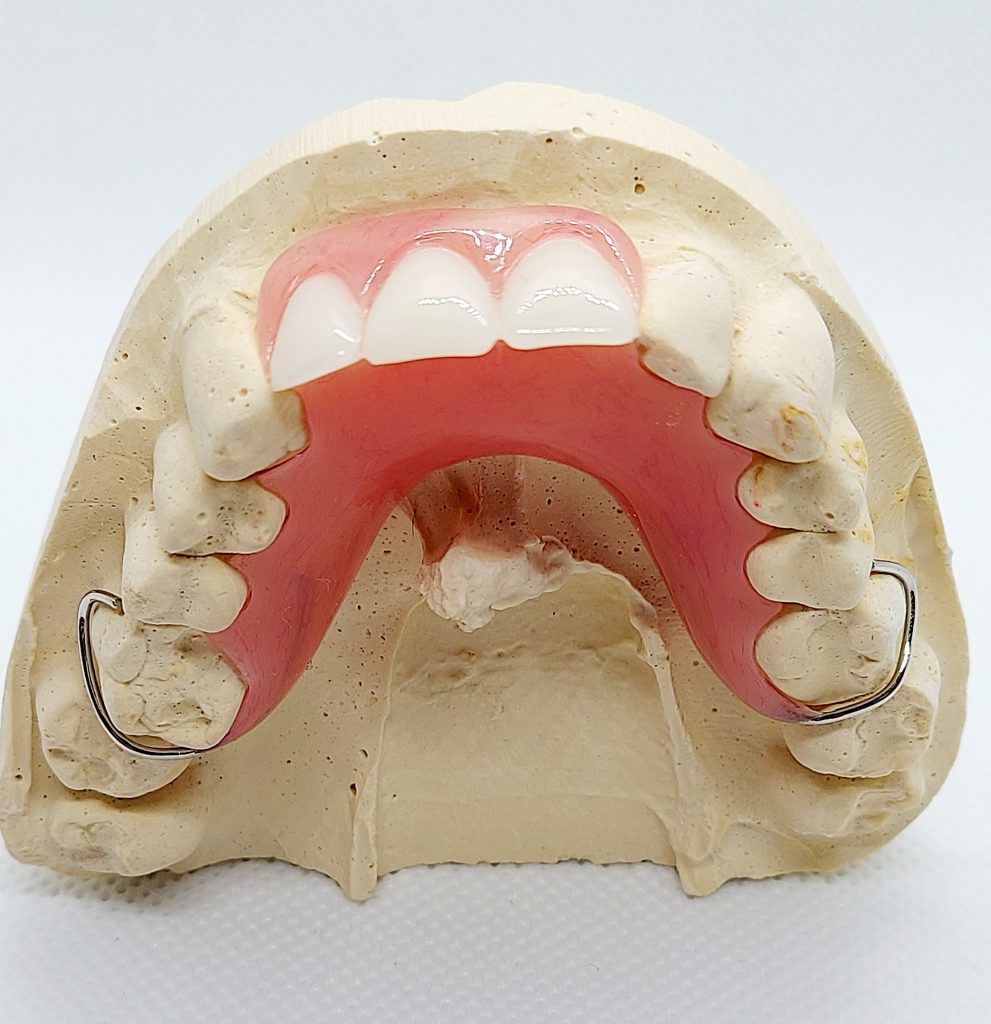
An acrylic removable partial denture has a plastic plate with false teeth set into the base. Small metal clasps are affixed to your teeth to keep them secure in your mouth. However, these can appear bulkier than their metal counterparts.
Porcelain dentures are far more durable than acrylic and are designed for the daily wear of talking, chewing, and biting. On top of that, they offer excellent aesthetic appeal as their replacement teeth look very much like natural teeth.

If you have an allergy to acrylic or find traditional plastic or metallic partial dentures uncomfortable, this is the perfect option. This partial denture is made from a delicate, flexible plastic that blends seamlessly with your gum line. The clasps are colored to match your gums perfectly for a natural look and feel.
The metal clasps are typically made from materials like cobalt-chromium alloy or other dental-grade metals. These materials are known for their strength, durability, and resistance to corrosion, making them well-suited for this purpose. The clasps are custom-fitted to the patient’s mouth and natural teeth, ensuring a secure and comfortable fit for the partial denture.
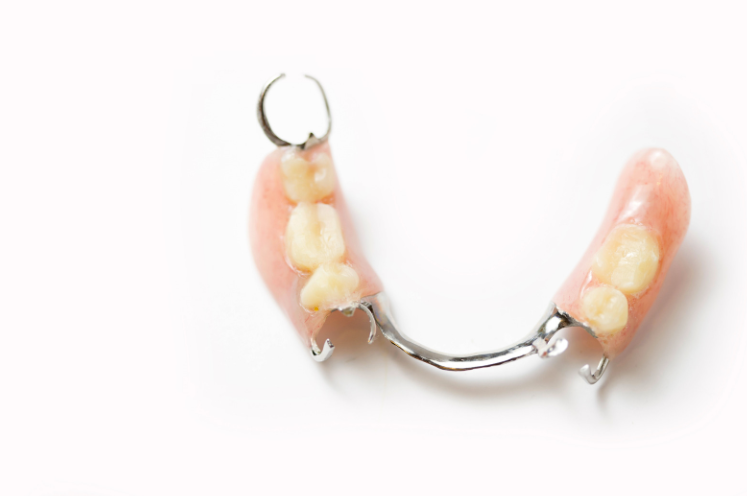
Below is a quick comparison of the different materials used for partial dentures.
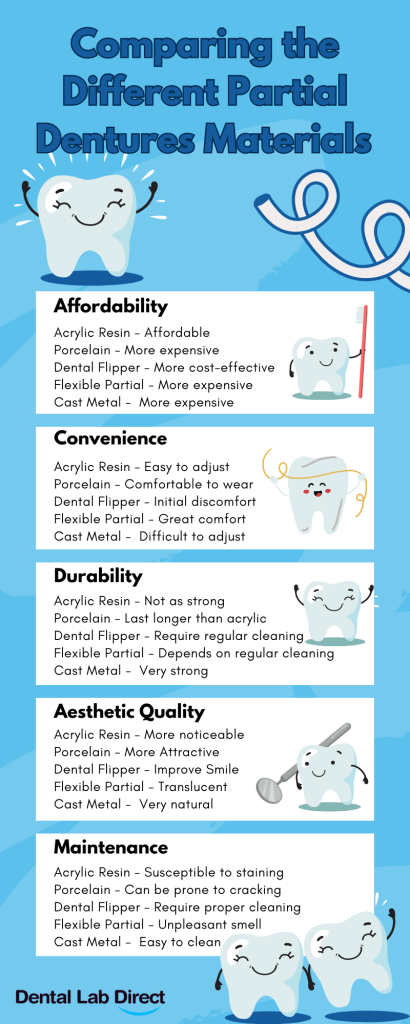
Selecting the right partial dentures can be a pivotal decision in restoring your smile and oral health. With a variety of options available, the choice can seem daunting.
If you lead an active lifestyle, metal dentures may be your best option. They are durable and long-lasting compared to acrylic dentures, which can be more prone to wear and tear. On the other hand, acrylic dentures may be sufficient for your needs if you have a more sedentary lifestyle.
Your budget is another crucial factor to consider. Acrylic and plastic dentures are typically more affordable than metal and porcelain dentures. If you have a limited budget, it may be wise to opt for acrylic dentures.
If you’re concerned about losing more teeth in the future, acrylic dentures are typically a better choice. They can be expanded and fitted with additional teeth, while metal dentures cannot.
Choose partial dentures that are easy to maintain for optimal oral health. Acrylic and plastic dentures are low-maintenance and can be easily cleaned with mild soap or denture cleaners. Metal and porcelain dentures require more specialized care to prevent damage and corrosion.
Regular cleaning, inspection, and repair are necessary to prevent oral health issues like gum disease, bad breath, and tooth decay.
No matter what material you choose, partial dentures will improve your look and ability to eat, talk, and chew.

At Dental Lab Direct, we use only the best materials and products approved by FDA. We go one step further with our appliances being completely hypoallergenic, so you can have peace of mind that dangerous chemicals used by other companies will cause no negative reactions.
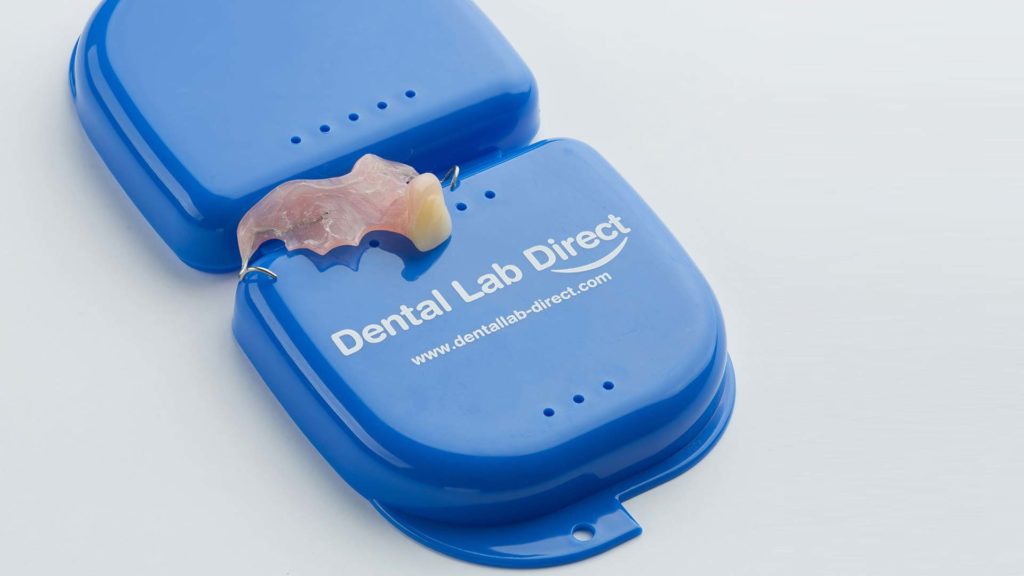
Choosing the right material for your partial denture is crucial to your oral health, lifestyle, and budget.
At Dental Lab Direct, we use only the highest quality, FDA-approved, and hypoallergenic materials for your dentures. Our skilled denturists will guide you through the options and help you select the best partial denture for your situation.
With proper maintenance and care, you can expect your partial dentures to last for many years, enhancing your appearance, speech, and ability to eat comfortably.

Satisfaction is our goal. If for any reason you aren't happy with your custom-made DLD appliance, just contact us and we'll make sure you are.
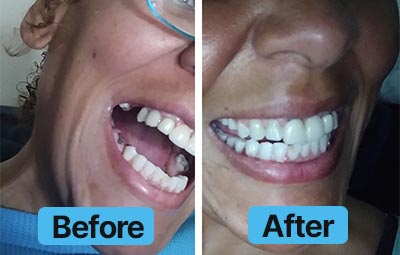
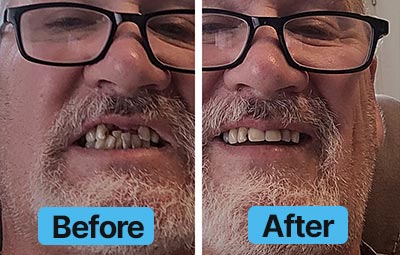
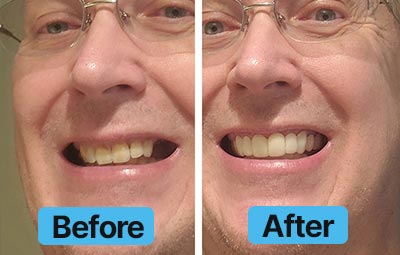
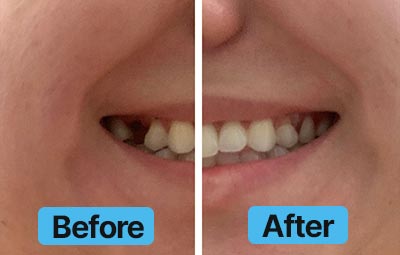
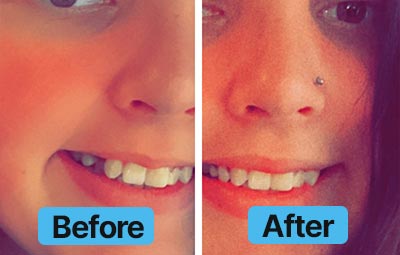
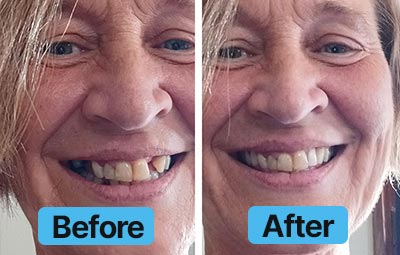
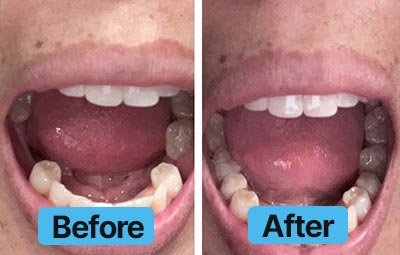
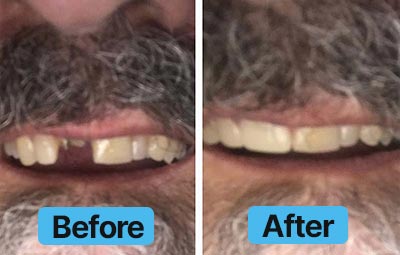
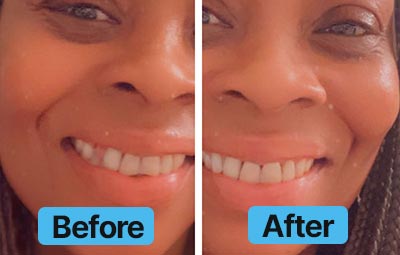
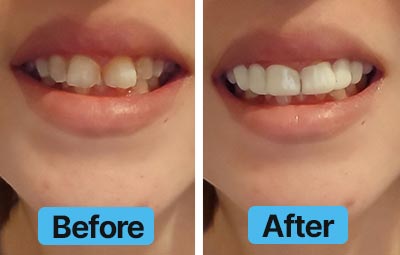
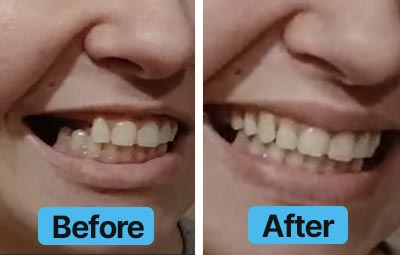
Thanks for the partial-it fits good.I also bought a retainer & haven't received it yet. THANKS 😊
My partial fit perfectly! Very happy that my daughter recommended Dental Lab Direct. Now I can smile without missing 3 bottom front teeth.
This felt like a huge gamble-not only doing it through the mail but because I needed the two teeth farthest back on one side only and worried there was no way for the appliance to stay in place. I was blown away by the quality and fit. It’s very secure even when eating
Very professional staff..the product very well made.satisfied costumer
Wow!
Great service and the appliances are perfect🙂
I ordered and received both top and bottom flexible partials.
I couldn't be happier!
Thank you!
I am very happy with my purchase it’s a game changer very comfortable and realistic looking
I am in love with my Nesbit Flexible Partial! The process was quick and easy!
Perfect fit. Perfect color match. I am able to smile with confidence again. So glad I ordered.
Can't actually believe I can smile again for the first time in years…I feel like my true self THANK YOU Dental Lab Direct
Perfect fit, fast shipping A+
These dentures have given me back my confidence - Eating and talking is so easy now thank you!
It felt just a bit snug but I got used to it. It kept my teeth straight.
No more metal in my mouth, thank you!!
The Nesbit saved me, thank you.
Best $350 I spent all year. Confidence booster.